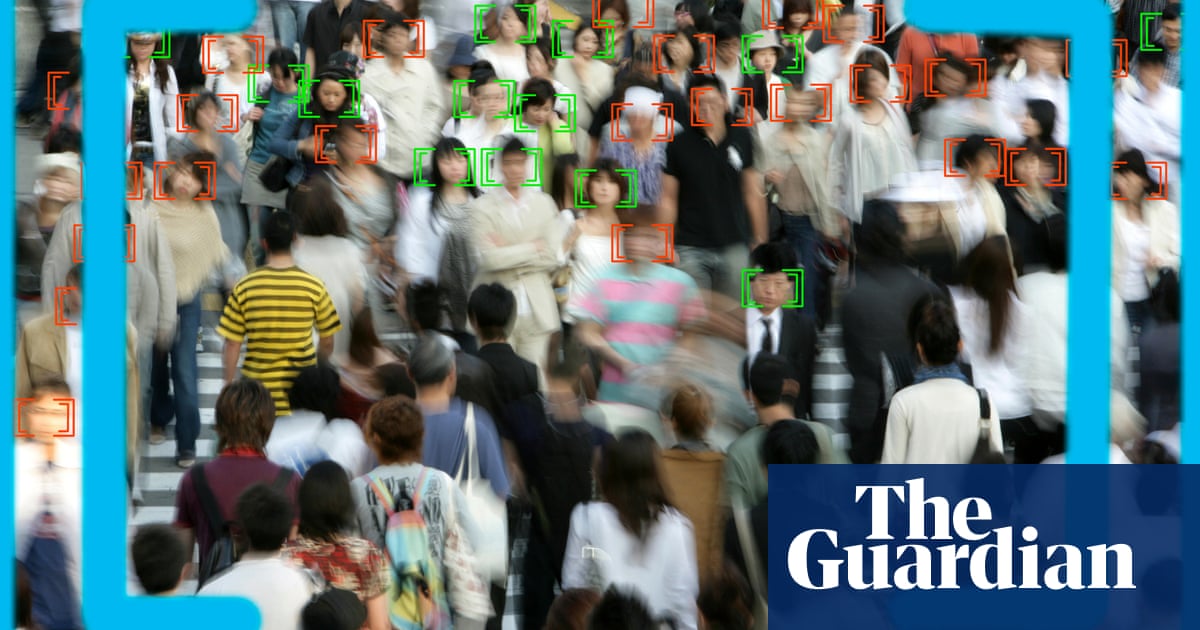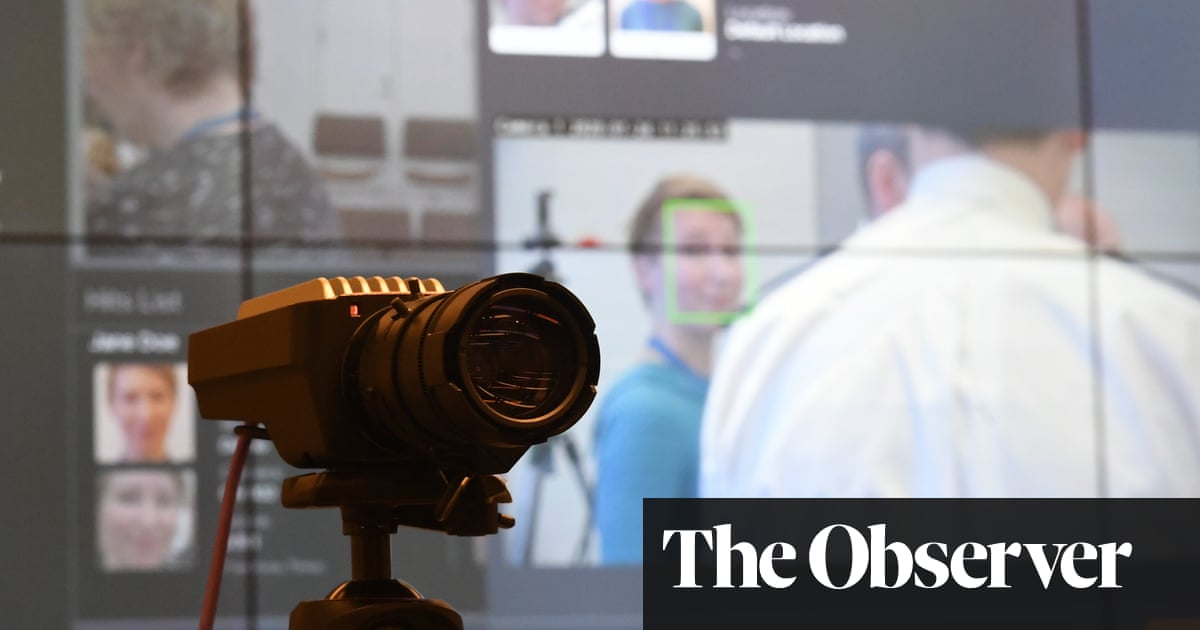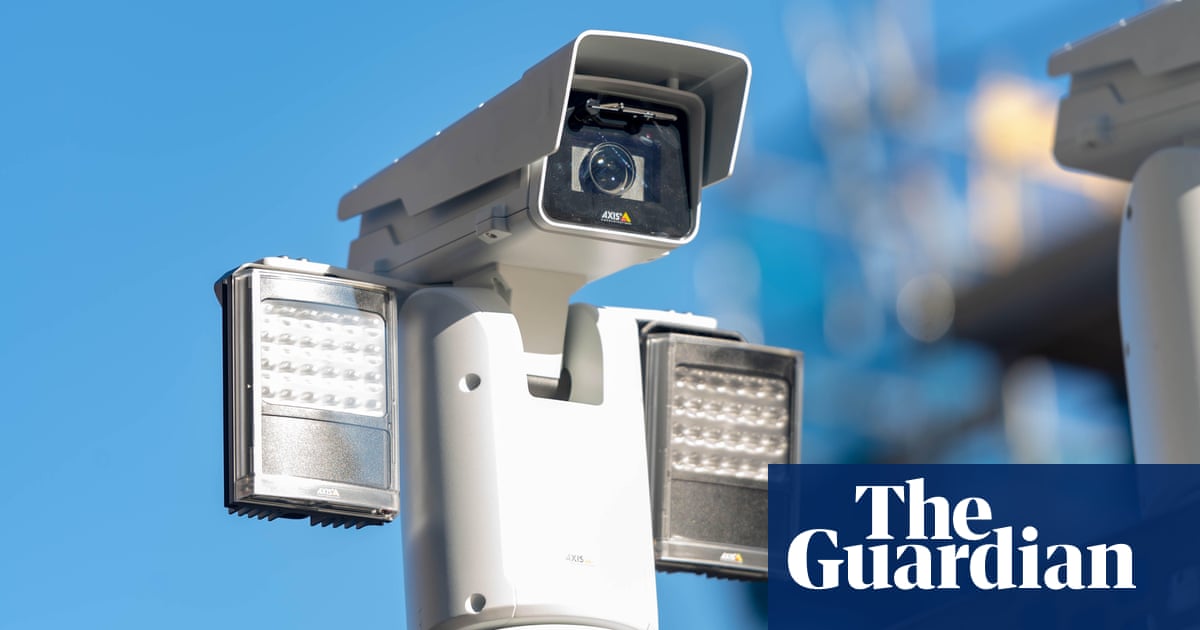
John Oliver returned to the white void of at-home Last Week Tonight on Sunday with a report on facial recognition, a technology which has been around for years but whose use by law enforcement has come under renewed scrutiny as protests against anti-black racism and police brutality continue across the US.
Law enforcement is one of the biggest users of facial recognition in the US, Oliver explained, with one study finding that approximately half of all Americans have had a photo of them searched through by the police – the justification being that ethically fraught facial recognition tech may prevent terror attacks or other crimes.
“It’s hard to come out against the prevention of atrocities – this show is and always has been anti-atrocity,” Oliver said, quoting a London police official. “But the key question there is what’s the trade-off? If the police could guarantee that they could prevent all robberies but the only way to do is that by having an officer stationed in every bathroom watching you every time you take a shit, I’m not sure everyone would agree that it’s worth it, and the people who do might want that for reasons other than preventing crime.”
America’s summer of racial reckoning is actually “a very good time to be looking at this issue,” Oliver continued, because of concerns that facial recognition has been used to identify Black Lives Matter protesters. This surveillance has precedent: during 2015 protests in Baltimore following the death of Freddie Gray, a Black man, in police custody, law enforcement used facial recognition to identify Facebook profiles and target arrests for outstanding warrants, “which is a pretty sinister way to undermine the right to assemble”, said Oliver.
Flash forward five years, and there still aren’t many rules for how facial recognition can be used by anyone, especially those in power. “This technology raises troubling philosophical questions about personal freedom and, right now, there are also some very immediate practical issues,” Oliver said. First, the technology has inherent racial bias; one MIT researcher found that Amazon’s facial technology failed to identify darker-skinned female faces, but had no issue with white men. “White guy? No problem,” said Oliver. “Which, yes, is the unofficial motto of history, but it’s not like what we needed right now was for computers to somehow find a way to exacerbate the problem.”
Even if these issues were smoothed out, “we should really be asking ourselves how much we’re comfortable with it being used by police, by governments, by companies, or indeed by anyone,” Oliver said. “And we should be asking that right now because we’re about to cross a major line,” thanks to a company called Clearview AI, the subject of a deeply troubling New York Times expose earlier this year.
For years, major tech companies approached facial recognition with caution – “think about that: it was too Pandora’s Box-y for Silicon Valley, the world’s most enthusiastic Pandora’s Box openers,” said Oliver. Companies that developed it limited the technology’s use to strict data sets such as mugshots or driver’s license photos, but Clearview AI has crossed a breach. The company has collected a database of 3bn images by scraping images from social media sites such as Instagram, Facebook, LinkedIn and Twitter.
More than 600 law enforcement agencies are now using Clearview’s service, and with that many images, “you’re probably in that database, even if you don’t know it,” Oliver said. “If a photo of you has been uploaded to the internet, there’s a decent chance that Clearview has it, even if someone uploaded it without your consent. Even if you untagged yourself, or later set your account to private.”
Clearview’s scraping of images from social media sites violated their terms of service, resulting in cease-and-desist orders. But it has continued the practice, citing a first amendment right to harvest data from social media, “which is just not at all how the first amendment works,” Oliver countered. “You might as well argue that you have an eighth amendment right to dress up rabbits like John Lennon – that amendment does not cover what I think you think it does.”
Clearview’s founder, Hoan Ton-That, has said he “wants to be in the responsible category of facial recognition”, but Oliver pointed out several red flags, starting with Ton-That’s prior business development history, such as the app Trump Hair, which simply places an image of Trump’s hair on any photo, and ViddyHo, which phished users and spammed their Gmail contacts. “So I’m not sure that I would want to trust my privacy to this guy,” he said. “If, however, I was looking for someone to build an app that let me put Ron Swanson’s moustache on my face as my checking account was quietly drained – sure, then he’d be the top of my list.”
And though Ton-That has promised that Clearview AI will only work with law enforcement – “as if that is inherently a good thing,” Oliver noted – the company has already made deals with such corporations as Kohl’s, Walmart and Macy’s, and pitched to a white supremacist congressional candidate, Paul Nehlan, its “unconventional databases” for “extreme opposition research,” “which is a terrifying series of words to share a sentence with ‘white supremacist’,” said Oliver.
There have been some moves to curb use of facial recognition – San Francisco banned its use by city law enforcement, for example – “but we also need a comprehensive nationwide policy, and we need it right now”, Oliver argued. “Because, again, there are worries that it’s being used in the protests that we are seeing now.” The protests have already generated significant corporate changes – IBM said it will no longer sell facial recognition technology, Amazon has placed a one-year moratorium of its use with police departments and Microsoft now won’t sell its facial recognition technology until federal regulation is in place – “but there is nothing to stop those companies from changing their mind if people’s outrage dies down,” Oliver said.
“So if Clearview is going to keep grabbing our photos, at the very least, there may be a way to let them know what you think about that,” Oliver concluded. The next time you upload a photo, he suggested, throw one in with a sign reading “these photos were taken unwillingly and I’d rather you not be looking at them,” or, more simply, “fuck Clearview – that really does get the message across.”












